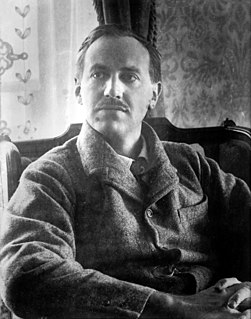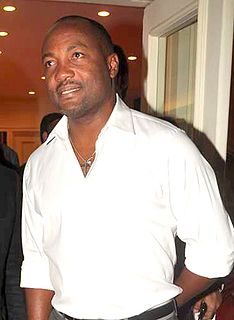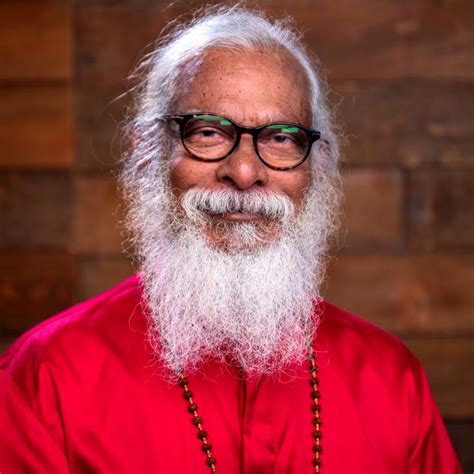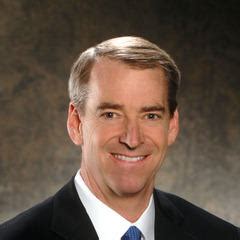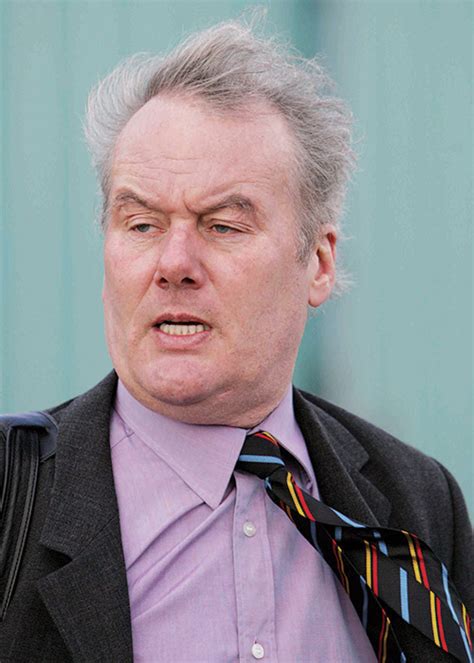Top 457 Galapagos Islands Quotes & Sayings - Page 8
Explore popular Galapagos Islands quotes.
Last updated on November 24, 2024.
The distribution of species on islands and continents throughout the world is exactly what you'd expect if evolution was a fact. The distribution of fossils in space and in time are exactly what you would expect if evolution were a fact. There are millions of facts all pointing in the same direction and no facts pointing in the wrong direction.
And I will now rock the brown basin from side to side so that my ships may ride the waves. Some will founder. Some will dash themselves against the cliffs. One sails alone. That is my ship. It sails into icy caverns where the sea-bear barks and stalactites swing green chairs. The waves rise, their crests curl; look at the lights on the mastheads. They have scattered, they have foundered, all except my ship which mounts the wave and sweeps before the gale and reaches the islands where the parrots chatter and then the creepers.
We are not isolated islands, we are connected links in a chain. Each kind word, each smiling face, each good action, benefits our neighbor, nation, world. Let us pray and meditate together and we shall reach the shore of peace, spreading the sweet holy fragrance of love and vibrations of unity and harmony. Tuning our minds to the supreme consciousness, let us open our hearts and chant the words, "May everyone everywhere be happy."
You recalled the 1956 declaration, and this declaration established the rules that should be followed by both sides and that should be put into the foundation of a peace treaty. If you carefully read the text of this document, you will see that the declaration will take effect after we sign a peace treaty and the two islands [Kunashir and Shikotan] are transferred to Japan. It does not say on what terms they should be transferred and what side will exercise sovereignty over them.
Yet in the blood of man there is a tide, an old sea-current, rather, that is somehow akin to the twilight, which brings him rumours of beauty from however far away, as drift-wood is found at sea from islands not yet discovered; and this spring-tide or current that visits the blood of man comes from the fabulous quarter of his lineage, from the legendary, of old; it takes him out to the woodlands, out to the hills; he listens to ancient song.
Some years ago our Japanese counterparts asked us to resume the discussions of the issue and so we did meeting them halfway. Over the passed couple of years the contacts were practically frozen on the initiative of the Japanese side, not ours. At the same time, presently our partners have expressed their eagerness to resume discussions on this issue [the Kuril Islands].
Of all the islands he'd visited, two stood out. The island of the past, he said, where the only time was past time and the inhabitants were bored and more or less happy, but where the weight of illusion was so great that the island sank a little deeper into the river every day. And the island of the future, where the only time was the future, and the inhabitants were planners and strivers, such strivers, said Ulises, that they were likely to end up devouring one another.
I liked myths. They weren't adult stories and they weren't children stories. They were better than that. They just were. Adult stories never made sense, and they were slow to start. They made me feel like there were secrets, Masonic, mythic secrets, to adulthood. Why didn't adults want to read about Narnia, about secret islands and smugglers and dangerous fairies?
I'd known the people at Rolling Stone for a while. I'd gone to them with a piece I'd done on Beirut for Vanity Fair that Vanity Fair didn't want to publish, because they said I was making fun of death... This was Tina Brown.But they paid me for it. So I've got this big chunk of a piece, and Rolling Stone liked it, but they thought it was a little dated. But then they called me back and asked me to do a similar piece about the Turks and Caicos Islands, where the whole government had been arrested for dope smuggling. That was fun.
Now all of the ideas that I'm talking about, they are not radical ideas. Making public colleges and universities tuition free, that exists in countries all over the world, used to exist in the United States. Rebuilding our crumbling infrastructure, and creating 13 million jobs by doing away with tax loopholes that large corporations now enjoy by putting their money into the Cayman Islands and other tax havens. That is not a radical idea.
Suddenly the clouds seem high above us. They’re moving over us in an arch, circling the planet. They have seen abysmal oceans and charred, scorched islands. They have seen how we destroyed the world. If I could see everything, as the clouds do, would I swirl around this remaining continent, still so full of color and life and seasons, wanting to protect it? Or would I just laugh at the futility of it all, and meander onward, down the earth’s sloping atmosphere?
America, so far as her physical history is concerned, has been falsely denominated the New World. Hers was the first dry land lifted out of the waters, hers the first shore washed by the ocean that enveloped all the earth beside; and while Europe was represented only by islands rising here and there above the sea, America already stretched an unbroken line of land from Nova Scotia to the Far West.
The metaphor is perhaps one of man's most fruitful potentialities. Its efficacy verges on magic, and it seems a tool for creation which God forgot inside one of His creatures when He made him. All our faculties keep us within the realm of the real, of what is already there. The most we can do is to combine things or break them up. The metaphor alone furnishes an escape; between the real things, it lets emerge imaginary reefs, a crop of floating islands.
For me as a kid, reading cyberpunk was like seeing the world for the first time. Gibson's Neuromancer wasn't just stylistically stunning; it felt like the template for a future that we were actively building. I remember reading Sterling's Islands in the Net and suddenly understanding the disruptive potential of technology once it got out into the street. Cyberpunk felt urgent. It wasn't the future 15 minutes out - it was the future sideswiping you and leaving you in a full-body cast as it passed by.
I wish I could tell you about the South Pacific. The way it actually was. The endless ocean. The infinite specks of coral we called islands. Coconut palms nodding gracefully toward the ocean. Reefs upon which waves broke into spray, and inner lagoons, lovely beyond description. I wish I could tell you about the sweating jungle, the full moon rising behind the volcanoes, and the waiting. The waiting. The timeless, repetitive waiting.
Everyone asks about gold. This is the irony: just as Jim Grant tells us (correctly) that we all have faith-based paper currencies backed by nothing, it is equally fair to say that gold is a faith-based metal. It pays no dividend, cannot be eaten, and is mostly used for nothing more useful than jewelry. I would say that anything of which 75% sits idly and expensively in bank vaults is, as a measure of value, only one step up from the Polynesian islands that attached value to certain well-known large rocks that were traded.
I have watched the river and the sea for a lifetime. I have seen rivers rob soil from the roots of trees until the giants came foundering down. I have watched shores slip and perish, the channels silt and change; what was beach become a swamp and a headland tumble into the sea. An island has eroded in silent pain since my boyhood, and reefs have become islands. Yet the old people used to say, People pass away, but not the land. It remains forever. Maybe that is so. The land changes. The land continues. The sea changes. The sea remains.
I think it's time we had a President who will provide the only real economic security: good jobs. A President who will provide middle class payroll tax relief to get money in the pockets of workers who will spend it, not more tax giveaways for those at the top to stimulate the economy in the Cayman Islands and Bermuda. A President who will index the minimum wage to inflation and raise it from a 30 year low, not increase the tax burden on the middle class and those struggling to join it.
I remember the reason why did I start my golf. We had a four day game I was playing for Trinidad against the Leeward Islands. They had in their ranks Winston Benjamin, Curtly Ambrose and Kenneth Benjamin. To add to it, the track was a green top. The four day game lasted two days, so I had two days to play golf.
National law has no place in cyberlaw. Where is cyberspace? If you don't like banking laws in the United States, set up your machine on the Grand Cayman Islands. Don't like the copyright laws in the United States? Set up your machine in China. Cyberlaw is global law, which is not going to be easy to handle, since we seemingly cannot even agree on world trade of automobile parts.
We have great cities to visit: New York and Washington, Paris and London; and further east, and older than any of these, the legendary city of Samarkand, whose crumbling palaces and mosques still welcome travelers on the Silk road. Weary of cities? Then we’ll take to the wilds. To the islands of Hawaii and the mountains of Japan, to forests where Civil War dead still lie, and stretches of sea no mariner ever crossed. They all have their poetry: the glittering cities and the ruined, the watery wastes and the dusty; I want to show you them all. I want to show you everything.
Rising sea levels will result in tens to hundreds of millions more people flooded each year with a warming of 3 or 4°C. There will be serious risks and increasing pressures for coastal protection in South East Asia (Bangladesh and Vietnam), small islands in the Caribbean and the Pacific, and large coastal cities, such as Tokyo, Shanghai, Hong Kong, Mumbai, Calcutta, Karachi, Buenos Aires, St. Petersburg, New York, Miami and London.
I had a lot of great lakes of ignorance that I was up against, I would write what I knew in almost like islands that were rising up out of the oceans. Then I would take time off and read, sometimes for months, then I would write more of what I knew, and saw what I could see, as much as the story as I could see. And then at a certain point I had to write out what I thought was the plot because it was so hard to keep it all together in my head. And then I started to write in a more linear way.
Much have I traveled in the realms of gold, And many goodly states and kingdoms seen; Round many western islands have I been Which bards in fealty to Apollo hold. Oft of one wide expanse had I been told That deep-brow'd Homer ruled as his demesne, Yet did I never breathe its pure serene Till I heard Chapman speak out loud and bold: Then felt I like some watcher of the skies When a new planet swims into his ken; Or like stout Cortez when with eagle eyes He stared at the Pacific, and all his men Look'd at each other with a wild surmise, Silent, upon a peak in Darien.
An interesting example is that the worst woman in the book, who is so cruel and violent, is the sorceress in "The Prince of the Black Islands." She's a beautiful young woman, and she has turned her husband into stone from the waist down. A traveling sultan finds him, in his dreadful state, and the man petrified from the waist down tells his sad story...how his wife comes every afternoon and beats him until the blood runs down. She's just unwontedly, arbitrarily cruel.
I was standing next to a famed geo-politician when the first news of the Argentine attack [on the Faulkland Islands] was received, and heard him muse incredulously: "An old-fashioned naval battle. A war between two civilized nations, perhaps with even a declaration of war, and later a peace conference. Wow." No hostages, no nukes, no ideologies, no religious fanaticism; just a fair-and-square war over national interests - hard to believe, in this day and age.
In 1990, about 1 percent of American corporate profits were taken in tax havens like the Cayman Islands. By 2002, it was up to 17 percent, and it'll be up to 20-25 percent very quickly. It's a major problem. Fundamentally, we have a tax system designed for a national, industrial, wage economy, which is what we had in the early 1900s. We now live in a global, asset-based, services world. And we need to have a tax system that follows the economic order or it's going to interfere with economic growth, it's going to reduce people's incomes, and it's going to damage the US.
If we assiduously cultivate our powers of exaggeration, perhaps we, too, shall obtain the Paradise of Liars. And there Raphael shall paint for us scores and scores of his manifestly impossible pictures... and Shakespeare will lie to us of fabulous islands far past 'the still-vex'd Bermoothes,' and bring us fresh tales from the coast of Bohemia. For no one will speak the truth there, and we shall all be perfectly happy.
It was hilarious [last scene with Edward Cullen] considering we'd spent the entire series filming in the most miserable conditions, and then we end on the beach in the Caribbean filming for two days in the sea. That was fun. We literally did the last shot as the sun was coming up in St. Thomas in the Virgin Islands. It was a nice way to end it, because they were considering shooting it in the sea in Vancouver, which would not have worked at all.
When James Calvert went out as a missionary to the cannibals of the Fiji Islands, the ship captain tried to turn him back, saying, "You will lose your life and the lives of those with you if you go among such savages". To that, Calvert replied, "We died before we came here". Believers who have the Gospel keep mumbling it over and over to themselves. Meanwhile, millions who have never heard it once fall into the flames of eternal hell without ever hearing the salvation story.
We grow up hearing so often that a straight line is the shortest distance between two points that we end up thinking it is also the best way to get there. A river knows better-:it has to do with how it dissipates the energy of its flow most efficiently; and how, in its bends, the sediment deposited soon turns into marshes and swampy islands, harboring all manner of interesting life, imparting charm and character to the whole waterway. I would defy you to find a river on this planet that prefers to run straight, unless it has been taught so by the U.S. Army Corps of Engineers.
The people of the Falkland Islands, like the people of the United Kingdom, are an island race. They are few in number but they have the right to live in peace, to choose their own way of life and to determine their own allegiance. They way of life is British; their allegiance is to the Crown. It is the wish of the British people and the duty of Her Majesty's Government to do everything that we can to uphold that right. That will be our hope and our endeavour, and, I believe, the resolve, of every Member of this House.
Each year, in this world, several languages do die out. There are certain languages that have their survival assured for many years, such as English, but there are other languages whose survival is not so sure, such as Catalan, especially if they don't have a state that protects them. Catalan is spoken in Catalonia, Valencia, the Balearic Islands, and Andorra. There are about ten million people who understand it and eight and a half who can speak it. But its future is much less certain than, for example, Danish or Slovenian or Latvian, because they have a state.
It's a very cheery thing to come into London by any of these lines which run high and allow you to look down upon the houses like this." I thought he was joking, for the view was sordid enough, but he soon explained himself. "Look at those big, isolated clumps of buildings rising up above the slates, like brick islands in a lead-coloured sea." "The board-schools." "Light-houses, my boy! Beacons of the future! Capsules with hundreds of bright little seeds in each, out of which will spring the wiser, better England of the future.
Ten thousand officers and men named Smith died in the First World War. One thousand four hundred Campbells died, six thousand Joneses, and one thousand Murphys. Smith, Campbell, Jones and Murphy: the names of the United Kingdom, whose presence in regiments from all four countries speaks of the ebb and flow of peoples within these islands, of a common sacrifice, and a shared agony that burned in so many million hearts down the decades.




